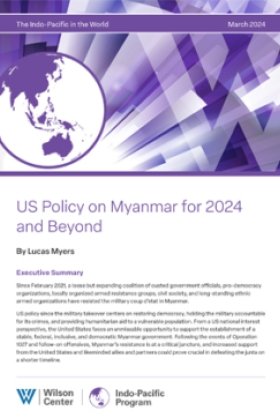What was it?
What was it – a global scale game, as to who can pay more and under what terms, or the real wish, although defined mainly by the pragmatic understanding of one’s own interests? This can be a simplified summary of the polemics which started in Ukraine and all over the world after the Association Agreement including establishing the preferential zone of free trade between Ukraine and the European Union was not signed in Vilnius. As time goes by, the former version of the game with the due adjustments predetermined by political situation in Bankova street becomes more and more popular. One can even hear a statement that current Ukrainian power could not sign the Agreement with the EU because of their incompatible mentality.

What was it – a global scale game, as to who can pay more and under what terms, or the real wish, although defined mainly by the pragmatic understanding of one’s own interests? This can be a simplified summary of the polemics which started in Ukraine and all over the world after the Association Agreement including establishing the preferential zone of free trade between Ukraine and the European Union was not signed in Vilnius. As time goes by, the former version of the game with the due adjustments predetermined by political situation in Bankova street becomes more and more popular. One can even hear a statement that current Ukrainian power could not sign the Agreement with the EU because of their incompatible mentality.
However, the mode of current power operation, especially after March 2013, suggests another interpretation – apart from political issues (selective justice, prosecutor’s office, selective legislation), all the necessary steps were taken to meet the established time frames for the signing of the Agreement. We believe that the Decree of Ukraine #127 of March 12, 2013 “On the decision of the Council of national security and defense of Ukraine of March 12, 2013 “On urgent measures with respect to the European integration of Ukraine” became the starting point of the process. It is a relatively short document, which specifies measures, executors and time frames. Nothing special – simple and clear tasks for those in charge of their implementation.
By the way, the Cabinet of Ministers was responsible for providing monthly information to the European Union on to the measures taken by Ukraine to meet the requirements necessary for the signing of the Association Agreement between Ukraine and the European Union; on timely and full-scope implementation of the 2013 plan of the priority measures for the Ukrainian integration into European Union, approved by the order of the Cabinet of Ministers of Ukraine #73-p. of February 13, 2013. The latter document spelled out a range of steps, e.g.:
- Devising draft laws necessary for the defining of national mechanism for the implementation of the Association Agreement between Ukraine and the European Union;
- Ensuring Supreme Rada support for a number of draft laws of Ukraine;
- Developing plan of action for public coverage of the main parameters and advantages of the future free trade zone between Ukraine and the EU…
That is how the decisions should be implemented if final results and not pure rhetoric is the goal. The government apparatus made decisions for the implementation. The quality of its operation must have been usual and average. But at least formally everything was done properly. New positive signals (legal and political) were heard in September. Right, the increasing financial problems in the country were disconcerting. In our opinion, this factor and its impact in the society were largely overlooked, despite its significance.
We refer to non-payments of salaries to budget sphere employees through treasury. They have been noted since 2008 and become routine by now. They are, in their turn, the result of the lack of anticipated budget revenues and disproportions which arise at the time of redistribution of the available funds. Everyone knows the definition of a bank incapable of meeting its financial obligations. The situation with the state is somewhat more complicated, although it has a number of well-known mechanisms. Indeed, the loans can be used to save the day, i.e. to adjust the balance, and then to pay the debts. This is the ideal scenario. Anyway, clearly there is a certain margin between the revenues and undertaken obligations which cannot be crossed. Otherwise the financial collapse will follow. So for a considerable period of time the potential ways of resolving the situation remained a mystery – shall it find funds within the country or shall it look for them outside? If the first option is unacceptable for some reasons, then what potential outside sources should be approached?
Such country as Ukraine does not have much choice – the EU, the USA, IMF, China, and Russia. Probably all these possibilities have been explored. At the end of the day, everyone had made some promises. The problem is, quick money, and not just money per se was urgently needed. And not for investments or modernization, but for immediate improvement of the situation (at least for some time – a long-time improvement was not considered under the circumstances). Current Russian political regime has a definite advantage: despite earlier clashes and economic pressure only it was capable of minimizing existing formalities and providing the necessary amount almost on the third day after achieving the agreements. The terms of paying back and liabilities were rather strict, but they entailed no visible social or economic requirements as to the steps taken within the country (we’ll learn later what was left behind the curtains). By the way, we believe that the earlier economic confrontation orchestrated by the Russian state was in fact aimed at cutting budget revenues down to the critical point – and the goal was achieved. It only remains unclear why we have never seen any adequate (not minimum) actions of the other party, when all the numbers and time frames could have been established properly?
In our opinion, the Ukrainian authorities for several weeks have been trying to convince the Western partners of the tragic situation in Ukraine, as seen by them. But the reasoning well-understood in this country turned out incomprehensible for the West. Lamentably so, considering the importance of the issue, as opposed to the complicated procedure, need to adhere to the proclaimed principles, persistent traditions or, even, trust towards the other party.
Paradoxically enough, under developments that followed the declared “break” in Euro-integration, Maidan had objectively helped current political leadership to obtain the external loan for quite substantial sum on the most favorable terms and for quite predictable period of time. Clearly, it is difficult to consider the feasibility of signing the Agreement prior to presidential elections of 2015, and no one knows what happens next. On the other hand, more relevant for Ukraine would be the answer to the question whether the guaranteed 25 % and all the other resources would suffice for the current president’s victory? V.Lenin in his own time gave a very peculiar analysis of the similar correlation in his essay “Elections to the Constituent Assembly and proletariat’s dictatorship”. He was interested not in the absolute figures and their ratio (it was quite obvious – the Bolsheviks got only one fourth of the votes altogether), but rather in the sufficiency of concentrated political influence on certain categories of public in the certain regions, first of all – in the cities (especially, in the capitals) in a given moment of time. The founder of the soviet state pointed out the dispersed nature and other flaws of his opponents. Other issues were addressed by him from the organizational point of view – with the help of the central apparatus of the state power and the army (we know what consequences it had for the country, but the goal was achieved).
There was an episode in the history of the US democracy: the presidential elections of 1936 were won – unprecedentedly – by the Democratic candidate, who had been the head of the state at the time - Franklin Roosevelt: he got 27.7 million votes against 16.6 million. And it happened while the Republican candidate had been actually supported by all American oligarchs, the majority of mass media, and the ratio of the funds spent constituted 1:2 in favor of the latter candidate. So everything was resolved by mathematic formula, i.e. the ratio between organizational, financial and mobilizing capacity of the opposing parties.
But it was in America. Getting back to our closer neighbors let us remind that the author of the aforementioned essay was inspired in his political thinking by Niccolo Machiavelli, who believed that the main thing for a statesman is to hold the power. That was the essence of his entire moral code. As to the acceptable methods, they are defined by the current moment, public response, opponents’ capacity of political fighting in each other’s grounds, positions of the leading countries of the world and, possibly, personal characteristics of the politicians. The balance of these factors will define the direction Ukraine will take in its further development.
About the Author
Volodymyr Boyko
Director, Center for Advanced Training of Public Officers, Governemnt Officials and Business Executives, Chernighiv Regional State Administration, Ukraine









